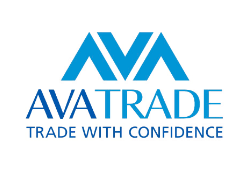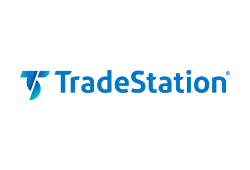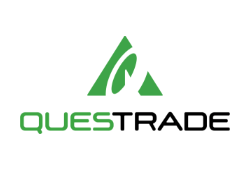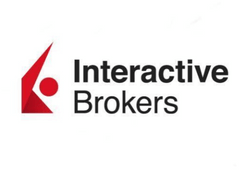Best Day Trading Platforms in Canada
As one of the most active and dynamic approaches to participating in the financial market, day trading aims to attract traders who wish to leverage rapid market fluctuations for short-term profits.
Our goal here is to provide you with a list of brokers that will provide the best overall experience, including pricing, security, and features like speed and reliability.
Best Day Trading Platforms in Canada for February 2026
Top 5 Canadian Day Trading Platforms - Our Picks for 2026:
AvaTrade
Questrade
TradeStation
Interactive Brokers
Wealthsimple Trade
How We Evaluate Day Trading Platforms in Canada
The rankings on this page are based on a number of key factors essential to the daily needs of active traders, helping to illustrate clearly which platforms perform the best.
Regulatory Compliance & Security
Day trading in Canada is overseen by the Canadian Investment Regulatory Organization (CIRO), which ensures brokers operate transparently and securely.
Each broker on our list must be compliant with CIRO Advisor Reports and CSA National Registration Database, and we also check the provincial authorization status, to see if a broker provides investor protection through the Canadian Investor Protection Fund (CIPF).
Trading Costs & Commissions
Day trading inherently involves frequent trades, which means that trading fees can impact your profitability much more than with some other forms of trading.
This is why we want to highlight brokers that offer not only competitive fees, but also those that value transparency, so you’re always aware of the additional costs and commissions that trading through their platform can incur.
Trading Platform Quality & Features
We believe that day trading platforms need to have a certain level of quality when it comes to the features and trading software they offer.
As this is probably the most active form of trading, we value brokers that have rapid trade execution speeds, comprehensive analytical tools and indications, as well as those that show stability during high-volume market periods.
We also prefer brokers that show high levels of customizability, and proper integration with essential third-party applications and plugins.
Educational Tools & Market Insights
Having an extensive selection of resources and tools built around education is something we’ll always look for when it comes to our ratings on this page.
Both novice and experienced day traders benefit from the opportunity to continuously grow their knowledge and have the most up-to-date market insights, which is why we rank those brokers that offer resources like webinars, courses, actionable insights, daily market analysis and interactive learning tools higher on our list.
Customer Support & User Experience
The overall quality of user experience is something we’ll always consider in our reviews, as we want to see high quality platforms with dedicated mobile apps and well-optimized websites, along with a top-notch customer support system.
This is why brokers that have user-friendly websites and apps, alongside multi-channel support systems and a staff that responds quickly and effectively will always receive a higher rating.
A Short Guide to Day Trading in Canada
Now that you know what makes a broker stand out, it is important to understand some basic things regarding the regulatory landscape in Canada, as well as technological needs, tax implications and other considerations that are crucial to navigating this trading space.
For a more in-depth explanation, you can always check out our dedicated guide on day trading.
Regulatory Oversight
Day trading in Canada is legal and regulated primarily by the Canadian Investment Regulatory Organization (CIRO), formerly IIROC
The organization is the one responsible for setting the trading conduct rules, as well as governing leverage use, investor protection standards and platform practices across provinces and territories
Always make sure to check if a broker disclose its CIRO registration on their website footer, as well as that they are authorized via the CSA National Registration Database.
Fund Safety and Risk Management
Besides the regulation we mentioned above, we advise that you always go with a broker that offers CIPF insurance, as it provides you with protection of up to CA $1 million in case the broker goes insolvent.
We also recommend going with platforms that feature robust risk management tools, such as stop-loss orders, trailing stops and negative balance protection, all of which ensures that your capital is significantly safeguarded.
Day Trading Taxes in Canada
All of the profits you make through day trading will be taxed and must be reported to the Canada Revenue Agency (CRA), but there are differences in the type of the taxes which you should be aware of first.
For example, if trading is only a side activity for you, 50% of all your gains are considered taxable, while frequent and systematic day trading can be taxed as high as 100% due to being considered as business income at your full marginal rate.
When it comes to losses, capital losses can offset capital gains and be carried forward basically indefinitely, while business losses can be deducted against your other business income.
If you’re trading frequently or plan to do so in the future, it is best to first consult with a tax advisor to determine all of your tax obligations.
Leverage and Margin Trading
While Canada doesn’t impose a specific Pattern Day Trader (PDT) minimum balance rule like the US, CIRO strictly regulates leverage. Brokers generally offer up to 1:4 leverage for stocks, while trading on futures, forex, or options comes with variable leverage.
Still, this leverage is limited to safer levels with government-regulated brokers, than it is the case with offshore counterparts.
Avoid unregulated brokers offering dangerously high leverage, as this significantly amplifies your risk of substantial losses.






